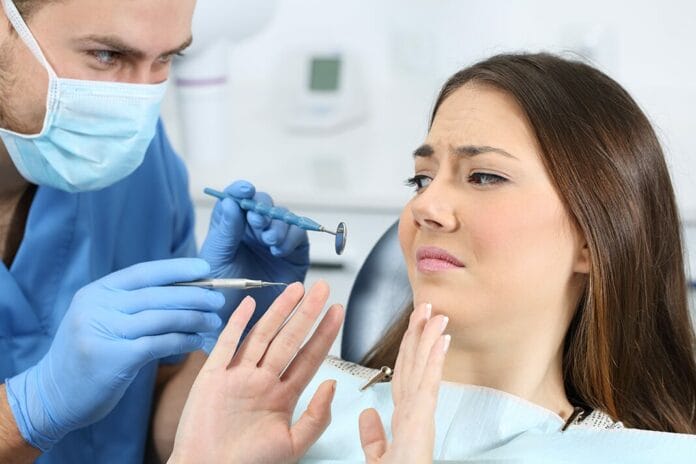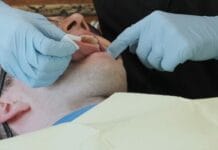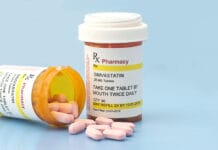
There is a growing trend in the cosmetic and beauty industry in which unlicensed individuals are practicing dentistry. Most of these establishments are hiding behind the guise of providing cosmetic services when, in fact, they are providing and recommending dental treatment that is not within their scope of practice in the cosmetic industry.
This is a cautionary tale for both consumers and dental professionals. Dental professionals need to be aware of this scam and make every effort to steer patients away from it, as it can be detrimental to their patient’s oral and systemic health. Consumers need to better understand the importance of ensuring the person providing dental treatment is indeed a licensed dental professional.
The following are true events that occurred that led me to write this article.
The “Deep Cleaning” Red Flag
A few weeks ago, a former patient reached out to me with questions about why her dentist and hygienist refused to provide her with a “deep cleaning.” This is quite the opposite of what most hygienists experience. Usually, the patient requests a “regular cleaning” when they indeed need periodontal therapy. As you can imagine, my initial response was that of confusion.
Upon further discussion, I discovered that the patient had a “teledentistry” appointment via Zoom with a company that is listed as a cosmetic company. This company told her they could do 20 porcelain veneers for $7,500, but first, they needed to complete a “deep cleaning,” which would cost an additional $500. They made this determination without any radiographs, periodontal assessment, or ever looking in the patient’s mouth.
The patient wanted to utilize her insurance benefits, so she called her dental office and requested to have a “deep cleaning” completed. The office manager advised the patient that she would need to meet certain criteria to qualify for non-surgical periodontal therapy or a “deep cleaning.” She was then appointed to have a comprehensive periodontal evaluation to determine if she needed the treatment. As an aside, this patient has been seeing her dentist and hygienist regularly every six months for years with no indication of the need for non-surgical periodontal therapy.
After the patient had a comprehensive periodontal evaluation, she was told she didn’t need a “deep cleaning.” However, the patient still wanted to have it done so she could get the veneers. She reached out to me to ask why the dentist and hygienist refused to provide her with the care she requested. She shared her periodontal charting and radiographs with me because I told her I needed to see them at the minimum to give her some guidance.
In the past, I have seen this patient in a clinical setting. However, I wanted to ensure I wasn’t missing some significant change since I left the clinical setting. As I suspected, the patient was healthy with no indications on her radiographs or periodontal charting of bone loss or even gingival inflammation that would be indicative of needing non-surgical periodontal therapy (“deep cleaning”).
I explained to the patient that providing her with a “deep cleaning” would be overtreatment and that it wasn’t an ethical practice. I explained it would be similar to being told you don’t have cancer yet insisting on having chemotherapy; there is no benefit, but it could cause harm.
The patient was so confused as to why this other “dental professional” that she had the Zoom appointment with told her it was necessary to have the “deep cleaning” before getting her veneers. This is the point when I asked if this person was a licensed dental professional, to which she replied, “Yes, they are.”
I wasn’t satisfied with this answer, so I said, “Let’s look up this person’s license number.” I’m sure you have already predicted the plot twist: They did not have a license to practice dentistry.
Who Can Catch the Unlicensed?
Licensed dental professionals and consumers alike need to know that every state has a licensee lookup. Therefore, if you are questioning if the person providing you (or your patient) with care is licensed, a quick licensee lookup search on a state dental board website can give you much-needed information before proceeding with recommended treatment.
Here is the conundrum: Where do you report this? A state dental board can only reprimand licensed dental professionals, meaning they have no jurisdiction over a person practicing dentistry who is unlicensed. You can report it to law enforcement, but they generally have bigger fish to fry. I also attempted to report this to the state public health department, but they didn’t know how to proceed with investigating this situation either.1
Nonetheless, I made an “official” report/complaint to the state health department, the state dental board, and the Federal Trade Commission regarding this incident.2 As of this writing, I have not heard from the state dental board, the state public health department, or the Federal Trade Commission in response to my reports/complaints.
In Closing
The current landscape in dentistry is a mess. Unless an individual is licensed, there is little oversight, which leads to loopholes that allow unlicensed individuals to practice dentistry. While an NFL player recently died due to untreated dental disease, others are actively covering up dental disease for cosmetic purposes, which could lead to health implications far worse than an ugly smile.3
In the end, this patient was very appreciative and was quite disheartened to know someone was able to take advantage of her so easily. If you are a consumer and something seems too good to be true, it probably is. Please always ask to see your dental provider’s license. In most states, licenses are required to be visible for patients to see. If there are no licenses on the walls in the establishment you are being seen, that is a red flag. Nonetheless, do not hesitate to ask to see the provider’s license.
If you are a dental professional, be aware this is happening in plain sight with little to no recourse for our profession or the consumer. Don’t shy away from asking questions when patients discuss getting a great “deal” on their dental work. Protect our profession and protect the consumers. Dentistry is like the Wild West right now – every person for themselves.
Before you leave, check out the Today’s RDH self-study CE courses. All courses are peer-reviewed and non-sponsored to focus solely on high-quality education. Click here now.
Listen to the Today’s RDH Dental Hygiene Podcast Below:
References
- State Dental Boards. (n.d.). American Dental Association. https://www.ada.org/en/resources/licensure/state-dental-boards
- Federal Trade Commission. (n.d.). Report Fraud. Federal Trade Commission. https://reportfraud.ftc.gov/#/
- Flores, E. (2023, December 23). Former NFL Player Mike Williams’ Death Caused by Rare Dental-Related Sepsis. USA Today. https://www.usatoday.com/story/sports/nfl/2023/12/23/mike-williams-death-nfl-sepsis/72021257007/











